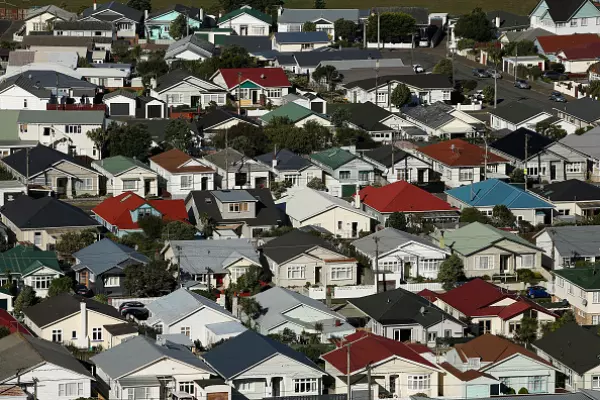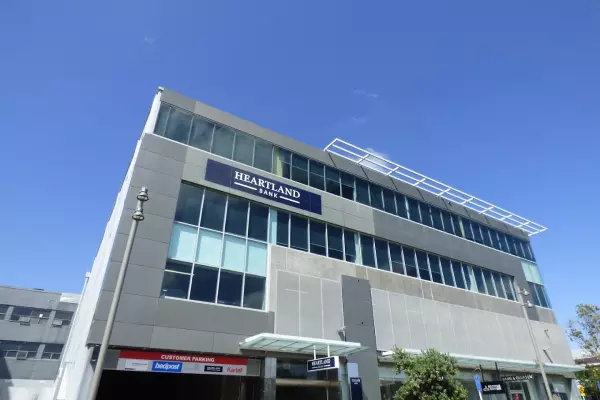For all the real difference it appears to have made, Finance Minister Grant Robertson might as well not have bothered putting pen to paper to ask Reserve Bank governor Adrian Orr to please stop pouring petrol on the already-roaring housing market fire.
Certainly, there was no discernible change to Orr's plans to continue shovelling money at the economy, regardless of the fact so much of the moolah is following the path of least resistance and ending up in the housing market.
And Orr's letter back to Robertson reads like a polite flipping of the bird in the best of 'Yes, Minister' traditions.
"I can assure you that" the monetary policy committee, "in making its decisions, gives consideration to the potential impact of monetary policy on asset prices, including house prices," Orr's letter said.
Orr certainly has form in giving the finger to inconvenient intrusions by ministers.
Back in 2009, then-Minister of Finance Bill English wrote a letter to Orr, then chief executive of the New Zealand Superannuation Fund, directing the fund's guardians to identify ways to increase its investment in NZ with an eventual target of 40 percent.
Blowing off the minister
Debate had been raging about the best uses of the Super Fund and no doubt English wanted to be seen as doing something about it, just as his successor now wants to be seen to be doing something to dampen house price inflation.
While promising to try to do what English was asking, a letter back to English from Orr and then Super Fund chair David May, in essence, told him to naff off.
"Given the unpredictable nature of future commercial, prudent investment opportunities, we are unable to offer an assurance as to how much, if at all, the fund's NZ assets will increase," their reply said.
In fact, the Super Fund's investment in NZ has fallen since then.
Possibly the most urgent matter on Robertson's mind was the RBNZ's planned funding-for-lending programme, under which it will provide banks with up to $28 billion of cheap funding, conditional on the banks actually doing the lending.
On top of the existing $100 billion large-scale-asset-purchases programme – the RBNZ had already spent $41.38 billion as of Nov. 25 – many observers are worried the FLP will still further inflame the housing market.
No modifications
At the media briefing on the RBNZ's latest financial stability report, delivered the day after the exchange of letters, Orr made it plain the central bank has no intention of modifying the FLP to either discourage its use for housing loans or to provide incentives for business lending.
"We agreed that would reduce the effectiveness of the FLP for the purpose we're introducing it" and the more constraints on the programme, the less effective it will be, Orr said.
How much of the FLP goes into housing lending will depend on demand, he said.
"We can provide access to capital. We can't force banks to lend and we can't force businesses or households to borrow," Orr said.
But that's disingenuous. Orr knows perfectly well banks need a lot less capital to support a housing loan than to support business lending. For example, in its latest disclosure statement, ANZ Bank NZ shows it needs about three times as much capital to support a business or agricultural loan as it needs to support the average mortgage.
So, in much the same way as water flowing downhill will take the path of least resistance, without any check on the FLP, much of it will flow into housing loans.
And it's that path of least resistance which has taken housing loans to 67 percent of ANZ's net loans and advances at Sept. 30 this year, up from 56 percent a decade ago.
Making no difference
However, Orr is correct to imply that adding a requirement for RBNZ to have regard to the prices of houses and other assets wouldn't make any difference to monetary policy.
When Robertson changed the policy targets agreement to include the requirement to "support maximum sustainable employment" in March 2018, the consensus was that it wouldn't change the setting of monetary policy.
But that was before the RBNZ began using "unconventional" monetary policy tools such as the LSAP and the soon-to-be FLP.
Westpac chief economist Dominick Stephens does think Robertson's directive will make the RBNZ take a more gradualist approach, something Stephens thinks will be a good thing. It will also make further cuts to the official cash rate less likely – Orr has been talking about taking the OCR negative.
But "the reality is that central banks can only permanently alter one thing – inflation. They cannot permanently alter the level of real house prices, or the real exchange rate, or anything else. The key decision central bank governors make is how assiduously to pursue the inflation target," Stephens said of the latest developments.
ANZ's economists take a similar view: "In reality, under the proposal, policy setting wouldn't actually be much different," they said in their commentary.
"Any change in remit would have little effect on the policy in practice or the outlook, unless a monetary policy decision was a line-ball call. Certainly, we don't think it would have changed how policy has played out this year at all," they said.
Kabuki dancing
But perhaps, like English in 2009, it's more important to Robertson to be seen to be doing something, rather than actually doing something, and that deflecting the blame onto Orr and the RBNZ is a way to take the focus of ire about rising house prices off the government.
It's certain Robertson's Labour government isn't going to change its policy of raising the top tax rate from April 1 next year, a move which will push house prices higher as those on incomes above $180,000 seek to mitigate the impact through buying rental properties.
And Prime Minister Jacinda Ardern is highly unlikely to renege on her promise not to introduce a capital gains tax.
Her government had already discovered during its first term how difficult it is to address the housing shortage, one of the root causes of rising house prices.
Indeed, the National Party – which was no more successful at addressing the problem last time it was in government – spent a lot of time joking about how the KiwiBuild policy was going to take more than 400 years to reach its target of 100,000 new homes, rather than the policy's 10-year target.
So, with many of the policies that would make a difference a political impossibility, and those that are possible still terribly difficult, roll on with the kabuki dancing and Yes, Minister!















